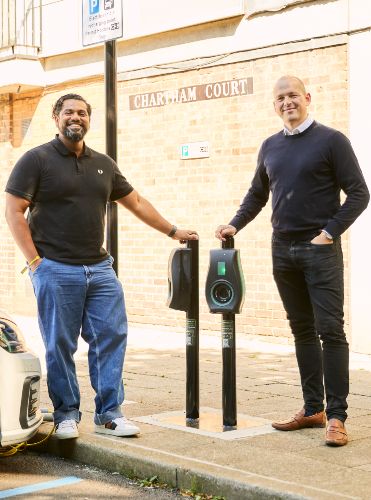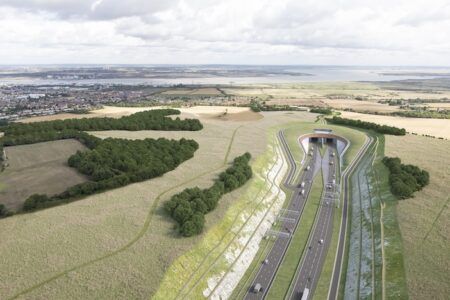The London Borough of Lambeth is working with Connected Kerb, an electric vehicle (EV) charging specialist, on a first-of-its-kind project to demonstrate how affordable and accessible public EV charging infrastructure can be deployed to tackle EV inequality. This infrastructure can also drive greater EV adoption amongst communities traditionally under-represented in the EV transition.
Approximately one third of residents in Lambeth live on estates managed by the council and the majority of housing in the Borough does not have off-street parking. This means that a large proportion of drivers will have to rely on public EV charging infrastructure.
 The project includes 22 on-street EV chargers across 11 council estates in the Borough to provide easy access to public charging, even for those without off-street parking. It forms part of the council’s wider strategy to work with multiple charge point operators to install more than 200 charge points by 2022, with the aim of ensuring every household with no access to off-street parking is within a five-minute walk of their nearest charge point.
The project includes 22 on-street EV chargers across 11 council estates in the Borough to provide easy access to public charging, even for those without off-street parking. It forms part of the council’s wider strategy to work with multiple charge point operators to install more than 200 charge points by 2022, with the aim of ensuring every household with no access to off-street parking is within a five-minute walk of their nearest charge point.
Each of Connected Kerb’s chargers will provide a 7kW fast charge, perfect for habitual on-street charging where residents are parked for a predictable amount of time each day. Every charge point will feature contactless payment via the Connected Kerb app with a consistent network and tariff across the sites, enabling fair and equal access for everyone.
Road transport is the biggest cause of air pollution in Lambeth, accounting for more than 50% of its emissions. As well as installing EV charging, the council is also putting in measures to curb emissions from roads, including encouraging more cycling, increasing public transport use and investing in raising awareness of the dangers of air pollution. The project will act as a blueprint that can be adopted at scale by other boroughs, councils and cities across Britain to deliver an inclusive and equitable EV transition, serving all members of society, including the 40% of households nationally without off-street parking.
This project was funded in part through the UK Government’s On-Street Residential Charge Point Scheme, available to all local authorities in the UK. Through the scheme, 75% of the costs were financed by the Office for Zero Emission Vehicles and the remaining costs were covered by the council.





